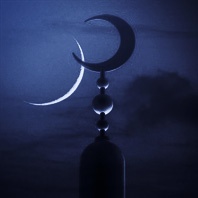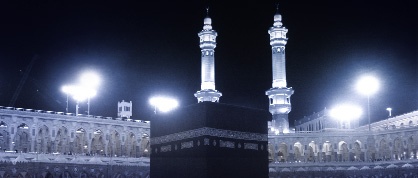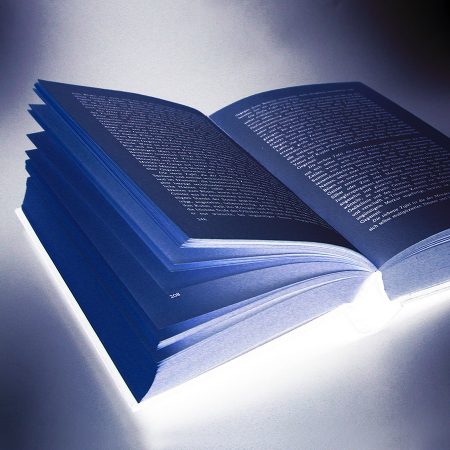The lunar calendar of Islam

As a general rule, we live our secular life by a so-called solar calendar, the Gregorian calendar, which determines our calculation of time since the end of the 16th century. The biggest advantage of a solar calendar is its connection to the seasons: it is warm in summer, cold in winter, at least this is how it should be … at times however, as we all know, the weather goes crazy and sunshine is long-awaited in summer and snow stays away in winter. The seasons are connected to the (solar) calendar months.
This is completely different with the lunar calendar, whose calculation of time is determined by the moon cycle and therefore differs from the solar calendar. One lunar month lasts about 29.5 days, hence, one lunar year about 354 days, being 11 days shorter than the solar year with 365 days. Consequently, the months of the lunar calendar move through the seasons.
The lunar calendar is also of great importance today, for example in Islam. Thereby, the beginning of the month is set on the day where the moon crescent is visible for the first time just after new moon. This moment – also referred to as »first lunar crescent visibility« – is portrayed with the well known thin moon crescent that can be seen on many mosque cupolas and flags. Due to the length of the month of 29 or 30 days, the (lunar) months move through the (solar) calendar. Every Islamic month can therefore, during the course of time, fall into every season of the year. In this year for example (1432, Islamic), the month of fasting, Ramadan, started on the 1st August and ended on 29th August (new moon). In 16 years, it will take place in February/March.

Now, this leaves us with a fascinating fact: when a Muslim or a Muslima was born on a full moon, every birthday will be a full moon for him or her! Because every moon cycle is repeated in the Islamic calendar at the same time of the respective moon month. What a birthday present!
For the sake of thoroughness, one should mention that it says in the Qur’an, a believer should neither prostrate sun nor moon, but prostrate Allah, if it should be Him that he worships (sura 41, verse 37). This appears to be wise, with the tendency of modern man to excessively worship everything that he encounters or feels enthusiastic about, instead of reflecting on his faith. This recollection of God unites the big world religions.
Everyone, who is interested in the moon or in particular the full moon, also lives a part of the lunar calendar and feels the magic of this special rhythm.
